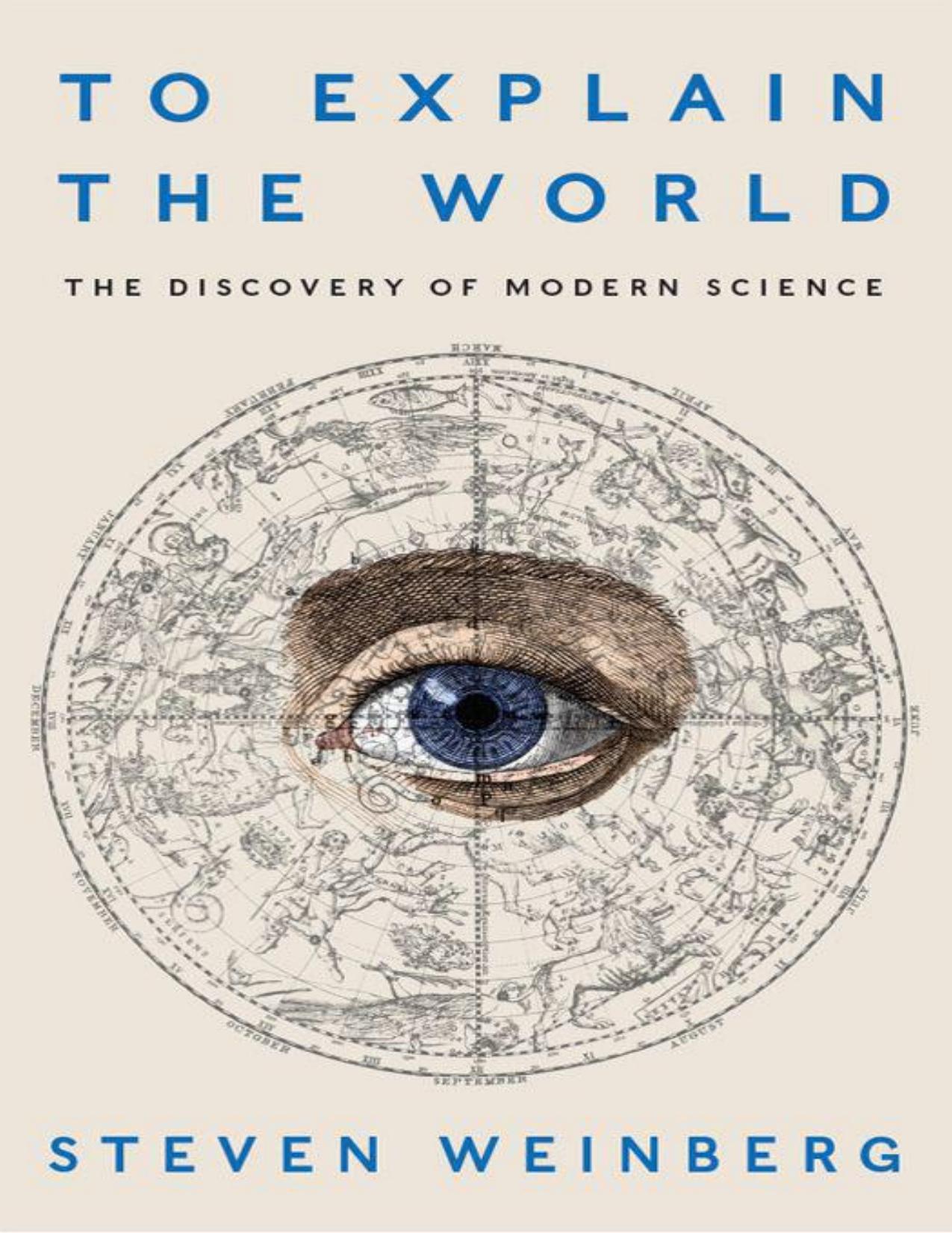To Explain the World: The Discovery of Modern Science by Steven Weinberg

Author:Steven Weinberg
Language: eng
Format: mobi, epub, pdf
Publisher: HarperCollins Publishers
Published: 2015-02-17T05:00:00+00:00
Descartes’ scientific misjudgments would not matter in assessing the work of someone who wrote about ethical or political philosophy, or even metaphysics; but because Descartes wrote about “the method of rightly conducting one’s reason and of seeking truth in the sciences,” his repeated failure to get things right must cast a shadow on his philosophical judgment. Deduction simply cannot carry the weight that Descartes placed on it.
Even the greatest scientists make mistakes. We have seen how Galileo was wrong about the tides and comets, and we will see how Newton was wrong about diffraction. For all his mistakes, Descartes, unlike Bacon, did make significant contributions to science. These were published as a supplement to the Discourse on Method, under three headings: geometry, optics, and meteorology.4 These, rather than his philosophical writings, in my view represent his positive contributions to science.
Descartes’ greatest contribution was the invention of a new mathematical method, now known as analytic geometry, in which curves or surfaces are represented by equations that are satisfied by the coordinates of points on the curve or surface. “Coordinates” in general can be any numbers that give the location of a point, such as longitude, latitude, and altitude, but the particular kind known as “Cartesian coordinates” are the distances of the point from a center along a set of fixed perpendicular directions. For instance, in analytic geometry a circle of radius R is a curve on which the coordinates x and y are distances measured from the center of the circle along any two perpendicular directions, and satisfy the equation x2 + y2 = R2. (Technical Note 18 gives a similar description of an ellipse.) This very important use of letters of the alphabet to represent unknown distances or other numbers originated in the sixteenth century with the French mathematician, courtier, and cryptanalyst François Viète, but Viète still wrote out equations in words. The modern formalism of algebra and its application to analytic geometry are due to Descartes.
Using analytic geometry, we can find the coordinates of the point where two curves intersect, or the equation for the curve where two surfaces intersect, by solving the pair of equations that define the curves or the surfaces. Most physicists today solve geometric problems in this way, using analytic geometry, rather than the classic methods of Euclid.
In physics Descartes’ significant contributions were in the study of light. First, in his Optics, Descartes presented the relation between the angles of incidence and refraction when light passes from medium A to medium B (for example, from air to water): if the angle between the incident ray and the perpendicular to the surface separating the media is i, and the angle between the refracted ray and this perpendicular is r, then the sine* of i divided by the sine of r is an angle-independent constant n:
sine of i / sine of r = n
In the common case where medium A is the air (or, strictly speaking, empty space), n is the constant known as the “index of refraction” of medium B.
Download
To Explain the World: The Discovery of Modern Science by Steven Weinberg.epub
To Explain the World: The Discovery of Modern Science by Steven Weinberg.pdf
This site does not store any files on its server. We only index and link to content provided by other sites. Please contact the content providers to delete copyright contents if any and email us, we'll remove relevant links or contents immediately.
Enlightenment Now: The Case for Reason, Science, Humanism, and Progress by Steven Pinker(7308)
A Journey Through Charms and Defence Against the Dark Arts (Harry Potter: A Journey Through…) by Pottermore Publishing(4811)
The Immortal Life of Henrietta Lacks by Rebecca Skloot(4581)
A Journey Through Divination and Astronomy by Publishing Pottermore(4382)
Elon Musk by Ashlee Vance(4122)
Origin Story: A Big History of Everything by David Christian(3689)
COSMOS by Carl Sagan(3618)
Alchemy and Alchemists by C. J. S. Thompson(3516)
Bad Pharma by Ben Goldacre(3422)
Enlightenment Now by Steven Pinker(3367)
Shadow of Night by Deborah Harkness(3361)
Inferior by Angela Saini(3311)
A Mind For Numbers: How to Excel at Math and Science (Even If You Flunked Algebra) by Barbara Oakley(3302)
Origin Story by David Christian(3196)
The Code Book by Simon Singh(3185)
Signature in the Cell: DNA and the Evidence for Intelligent Design by Stephen C. Meyer(3132)
The Elements by Theodore Gray(3053)
A Brief History of Time by Stephen Hawking(3022)
A Journey Through Potions and Herbology (A Journey Through…) by Pottermore Publishing(2852)
